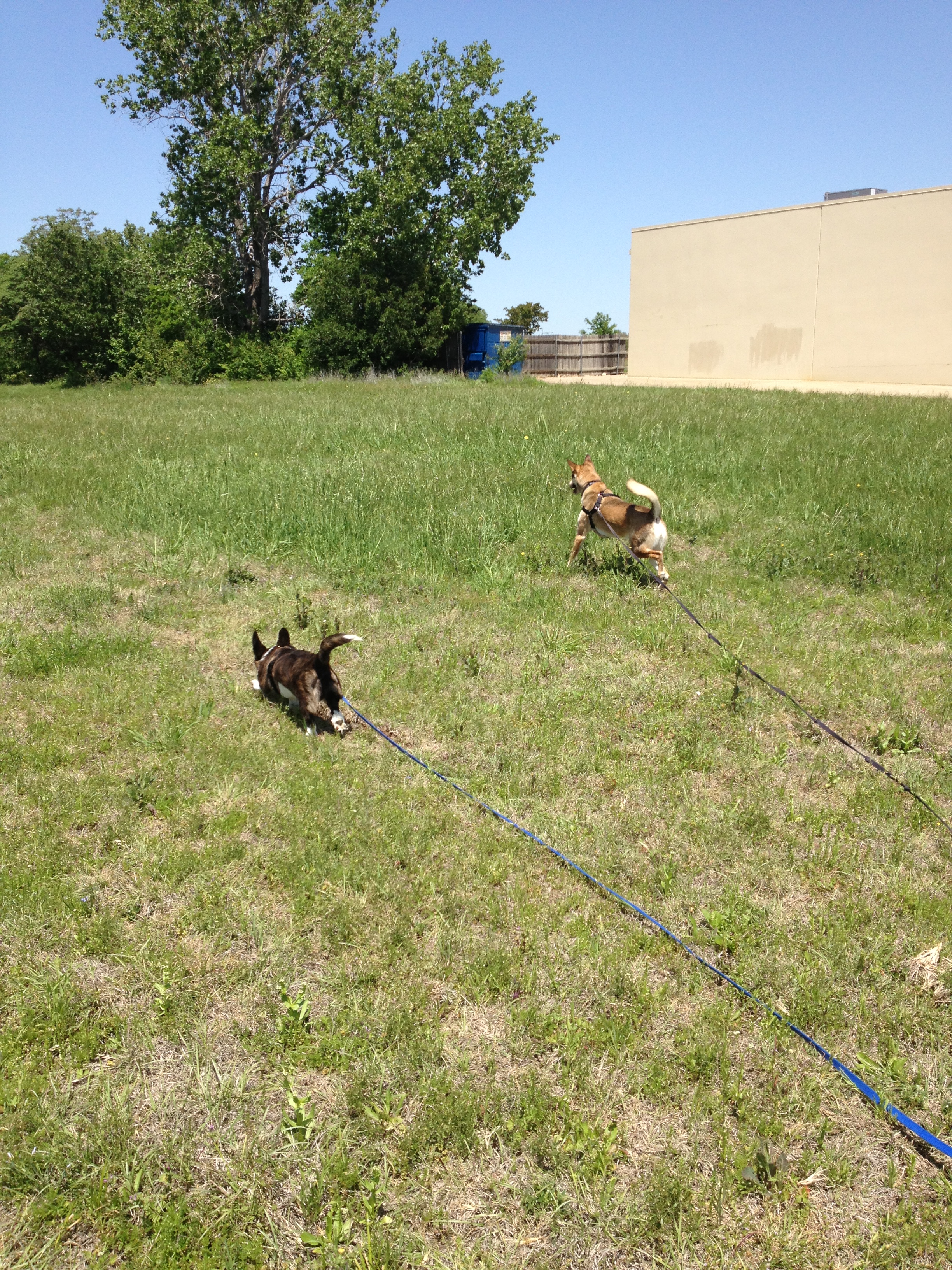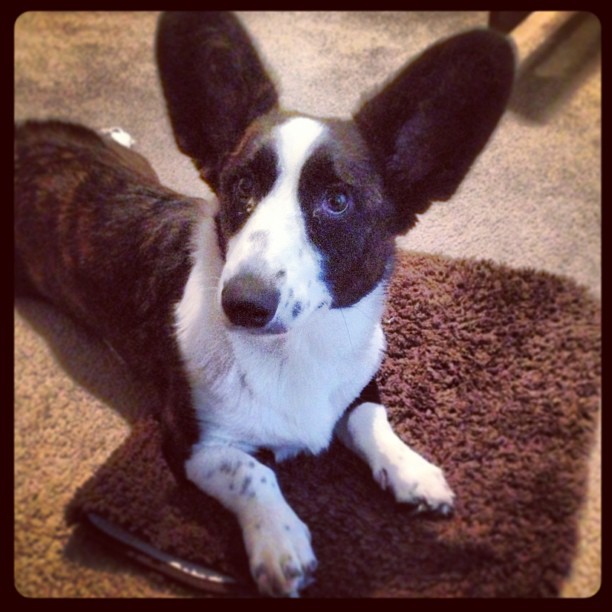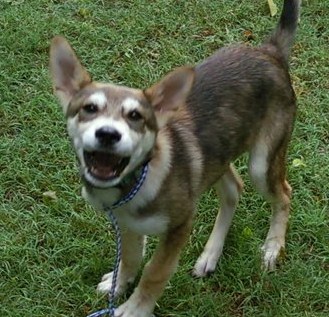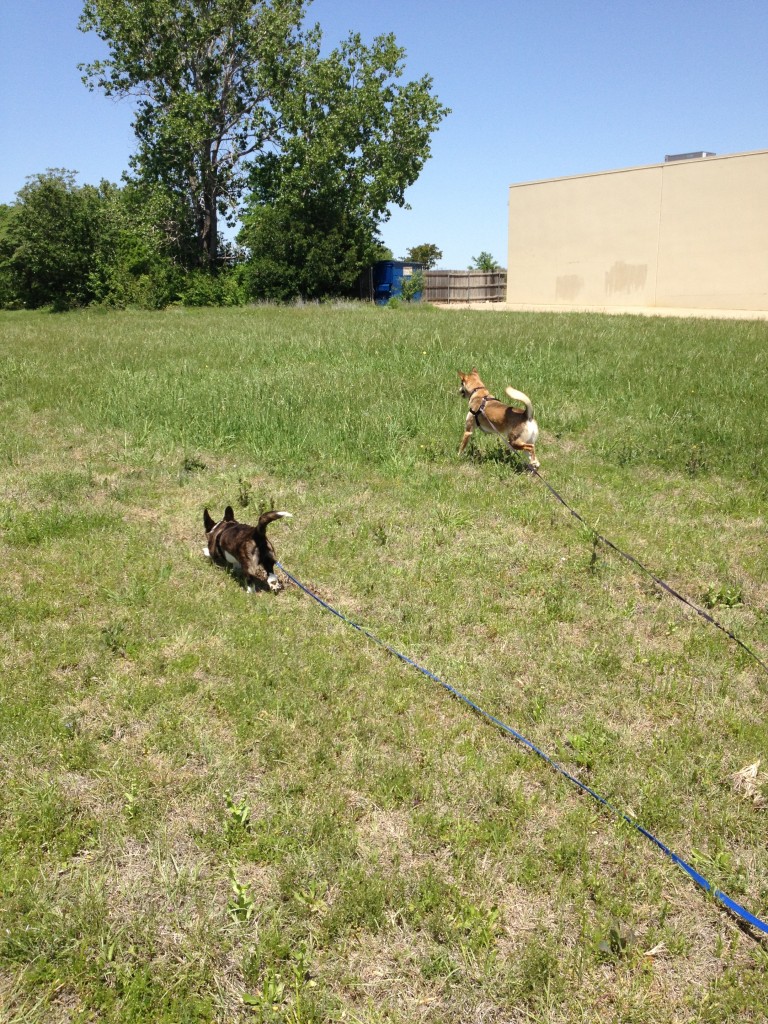 When I’m working and training Clark (my Cardigan Welsh Corgi puppy), he is amazing. Even during our group class, he makes me look like an awesome owner/trainer even though we haven’t worked on anything during the week since I’m focusing on finishing up my degree right now. I try and get him walked once a day, but sometimes that doesn’t even happen. Despite how little time I have to work with him these days, I still have found ways to work with one of his most annoying habits during our daily interactions.
When I’m working and training Clark (my Cardigan Welsh Corgi puppy), he is amazing. Even during our group class, he makes me look like an awesome owner/trainer even though we haven’t worked on anything during the week since I’m focusing on finishing up my degree right now. I try and get him walked once a day, but sometimes that doesn’t even happen. Despite how little time I have to work with him these days, I still have found ways to work with one of his most annoying habits during our daily interactions.
His most annoying habit, in my opinion, is jumping up in my other dog’s face in true puppy manner, but very intense – and my dog doesn’t correct him in any way. He just sits there and takes it which in turn drives me nuts! While I wish my other dog would tell him off, I am so incredibly thankful to have such a tolerant and intelligent dog to teach him good manners and play. It has been up to me to make sure the puppy respects him and his space. One of my solutions has been to keep Clark on leash with a harness when they are both in the same vicinity or out on a walk together. This allows me to prevent Clark from getting in the other dog’s face.
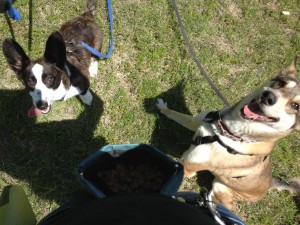 I was surprised the other day when I took them out on their third or fourth walk together and Clark gave up trying to get in my other dog’s face so quickly. By preventing this behavior from being practiced with some management (leashes/barriers), it has practically stopped occurring when out on walks together. I have also been rewarding Clark for checking in with me and staying with me while my other dog wanders around exploring the environment. This has given him an alternative behavior to practice (sticking next to mom where good things happen). I was so amazed at how quickly he was well on his way to leaving that behavior in the past.
I was surprised the other day when I took them out on their third or fourth walk together and Clark gave up trying to get in my other dog’s face so quickly. By preventing this behavior from being practiced with some management (leashes/barriers), it has practically stopped occurring when out on walks together. I have also been rewarding Clark for checking in with me and staying with me while my other dog wanders around exploring the environment. This has given him an alternative behavior to practice (sticking next to mom where good things happen). I was so amazed at how quickly he was well on his way to leaving that behavior in the past.
The good thing with puppies is they are a blank slate – they don’t have any long term habits formed. If you catch problem behaviors quickly and limit their ability to occur, you can easily change their behavior before they form solid habits.
